Faculty Learning Communities
Registration Now Open for AY2025/26 Learning Communities.
Register to Participate in a AY2025/26 Learning Community!
Faculty learning communities are defined as “cross-disciplinary faculty and staff group of 6-15 members that engage in ‘an active, collaborative, yearlong program with a curriculum about enhancing teaching and learning and with frequent seminars and activities that provide learning, development, the scholarship of teaching, and community building’” (Newman, 2017, p. 428).
At Peabody, the Learning Innovation team provides the frameworks and financial and structural supports for faculty to initiate, participate in, and report out of learning communities. These communities are provided platforms to share their findings, outcomes, and recommendations with both their peers and leadership, with the goal of improving the teaching and learning experience across the institution in a variety of ways.
- Community Guidelines
- Chair Responsiblities
- AY2024/25 Learning Communities
- Register to Participate in a AY2024/25 Learning Community!
Community Guidelines
A faculty learning community eligible for funding includes some or all of the following:
- One faculty Chair and one faculty Co-Chair.
- Members from two or more faculty departments representing both the Conservatory and the Preparatory. Communities with a single department discussing topics unique to that department will also be considered.
- One or more graduate or doctoral student representatives.
- Selection of a topic with the potential to impact teaching and learning at Peabody in ways both impactful and relevant to the Breakthrough Plan.
Funding up to $1250 per learning community per year will cover purchases for educational purposes, including but not limited to materials (books, research materials, etc.) and guest speaker stipends.
Chair Responsibilities
Each learning community should have one Chair and one Co-Chair to administer the community and keep it on track. Chairs and Co-Chairs of a learning community will:
- Lead 5 or more conversations with community members per academic year,
- Work to guarantee attendance and engagement among the community,
- Suggest, provide, and secure materials and guest speakers utilizing the community’s allocated budget,
- Administer and encourage participation in the community’s topic channel within the “Peabody Learning Communities” Microsoft Team.
- Present findings at the end of the academic year via a minimum 1-page report and a 20-minute presentation to peers, and
- Each receive one $750 stipend each in addition to the learning community’s budget, upon completion of deliverables at the conclusion of the academic year.
AY2024-25 Learning Communities
- Bridging the Gaps: Collaborative Possibilities at Peabody
- Peabody Research Consortium
- Research in Performing Arts and Global Student Experiences
- Sound Studies and Sonic/Media Arts
- Piano Pedagogy Lab
- AI and the Arts
Bridging the Gaps: Collaborative Possibilities at Peabody
Chairs: Kelly Hirina and Ed Tetreault
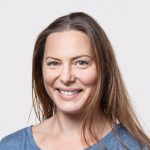
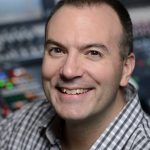 This Faculty Learning Community advances meaningful, sustainable collaboration between music and dance at Peabody Conservatory. Building on a year of idea generation and identifying broad possibilities, the group now turns to three targeted case studies, each rooted in a distinct area of interdisciplinary collaboration. These studies will explore how projects can be effectively structured, implemented, and sustained, identifying both opportunities and challenges in scheduling, space, mentorship, and communication.
This Faculty Learning Community advances meaningful, sustainable collaboration between music and dance at Peabody Conservatory. Building on a year of idea generation and identifying broad possibilities, the group now turns to three targeted case studies, each rooted in a distinct area of interdisciplinary collaboration. These studies will explore how projects can be effectively structured, implemented, and sustained, identifying both opportunities and challenges in scheduling, space, mentorship, and communication.
Alongside these in-depth studies, the FLC will support and assess smaller-scale collaborative experiments throughout the year, gathering real-time feedback to inform the broader vision. The aim is to develop practical, tested models that strengthen interdisciplinary work at Peabody. By grounding efforts in real projects, the group seeks to build a strong foundation for collaboration that benefits faculty, students, and the Conservatory’s creative culture. Faculty are invited to join as we move from ideas to actionable, sustainable outcomes.
Peabody Research Consortium
Chairs: Rachel Brashier and Remi Chiu
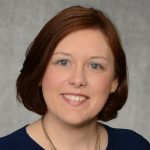
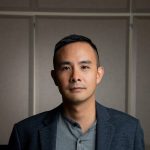
We are hoping to promote a culture of cross-divisional research at Peabody with a focus on the non-performance disciplines (music education, musicology, music theory, music and health, etc.) whose faculty and graduate students often pursue research that is qualitative, quantitative, mixed methods, comparative, or historical in nature. We propose a series of monthly or bi-weekly lunch or coffee gatherings where we can share our research in progress and get feedback on it from others engaging in publishable research projects. We also hope to engage some guest speakers in person or via Zoom who can help us learn more about new research methodologies and technologies.
Research in Performing Arts and Global Student Experiences
Chair: Ahlam Musa
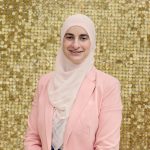 This Faculty Learning Community builds on the Teaching International Students initiative, responding to faculty interest in the intersection of performing arts and international student experiences. With limited research in this area, particularly regarding linguistic considerations, the group will explore how these factors shape learning and performance in music, dance, and related fields. Faculty will share expertise, review existing scholarship, and pursue new research to advance understanding and support student success. The aim is to strengthen resources and strategies that foster both artistic and academic achievement for international students in the performing arts.
This Faculty Learning Community builds on the Teaching International Students initiative, responding to faculty interest in the intersection of performing arts and international student experiences. With limited research in this area, particularly regarding linguistic considerations, the group will explore how these factors shape learning and performance in music, dance, and related fields. Faculty will share expertise, review existing scholarship, and pursue new research to advance understanding and support student success. The aim is to strengthen resources and strategies that foster both artistic and academic achievement for international students in the performing arts.
Sound Studies and Sonic/Media Arts
Chairs: Lyn Goeringer and Bryan Jacobs
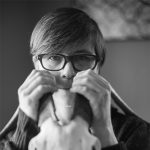
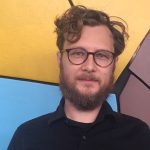 We invite practitioners and scholars from Peabody and the broader Johns Hopkins community whose research intersects and engages in Sound Studies and Sonic/Media Arts. Though we allow a broad interpretation for these fields, we are looking more specifically at Sound Studies as a field of research that theorizes and engages with sound from a cultural and phenomenological standpoint, with Sonic and Media Arts as a stage where these concepts are explored for more public audiences.
We invite practitioners and scholars from Peabody and the broader Johns Hopkins community whose research intersects and engages in Sound Studies and Sonic/Media Arts. Though we allow a broad interpretation for these fields, we are looking more specifically at Sound Studies as a field of research that theorizes and engages with sound from a cultural and phenomenological standpoint, with Sonic and Media Arts as a stage where these concepts are explored for more public audiences.
Over the last twenty years, sound studies have become a major component in musicological and media studies discourse around electronic music, sonic arts/sound art, and new media practices. For many, this has become a critical framework from which new music, sound art works are created, and informs daily practice within the field. For researchers, this framework has allowed new methods of analysis and critique so that we can better investigate contemporary sonic practices and their cultural impact.
This year, we will bring in three guest artists and scholars who will discuss their work in a public setting. We will also be working on a gallery show and performance in the spring. We are considering renting out Area 405 for this event.
Piano Pedagogy Lab
Chairs: Agustin Muriago and Hyun-Sook Park
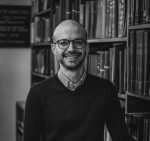
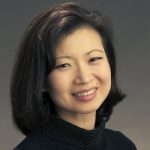
The Piano Pedagogy Lab offers a collaborative space to explore innovative approaches to twenty-first century piano teaching. Topics include the integration of technology, strategies for engaging an increasingly diverse student population, and evolving trends in pedagogy. Through group discussions and guest sessions with distinguished pianists and educators, participants will share insights, exchange ideas, and discover practical ways to strengthen their teaching and connect more meaningfully with our students.
AI and the Arts
Chair: Learning Innovation
Learning Innovation is leading conversations regarding AI and its potential effects and opportunities with regards to music and the arts. This learning community will explore the landscape of AI as it pertains specifically to the arts, discuss new developments, and determine programming for the larger Peabody community throughout the coming academic years.
Registration is Now Open for AY2025/26 Learning Communities!
Any faculty in the Conservatory or Preparatory can pariticpate in a learning community for the upcoming academic year. Communities run form October 1, 2025 – April 30, 2026.